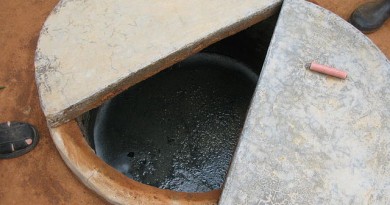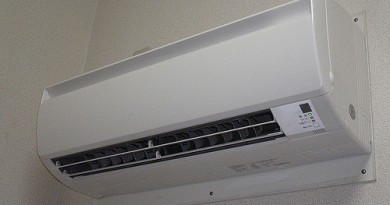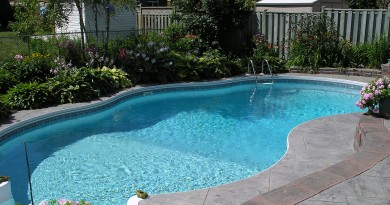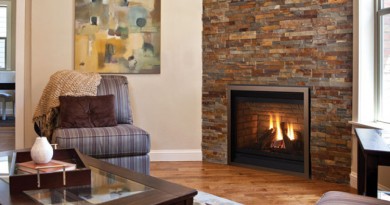How Much Does Cork Flooring Cost?
Cork is harvested from the Cork Oak which is native to southwest Europe and Northwest Africa. It is buoyant and impermeable. Cork has a variety of uses, one of which is as a flooring material.
Cork Flooring Prices
Cork flooring prices are comparable to bamboo flooring, if not just a tad more expensive. Cork flooring cost ranges from $4 to $12 per square foot, whereas bamboo flooring ranges from $2 to $10 per square foot. The cost of cork flooring for a 250 square foot kitchen is $1250 to $3000. Cork flooring prices are affected by the density of the material being used, and denser is better. Etched, carved, or stained cork flooring costs more per square foot than regular glue down cork flooring tiles. Floating tiles also increase the cost of cork flooring, and require more preparation and a better subfloor than glue down cork tiles. Do it yourself cork flooring projects are very manageable and will save a lot on cork flooring prices. Do it yourself tiles run from $2 to $10 a square foot depending on the style. That lowers the cost of cork flooring for a 250 square foot kitchen to $500 to $1000.
Cork Flooring Installation Cost
Cork flooring can be installed with a minimum of do it yourself skill. The cost of installing it yourself can be as little as $5 a square foot all together including necessary materials and the cork tiles themselves. The shape and condition of the sub floor will indicate whether you can use glue down tiles or if you need the more expensive floating tiles. The kind of tiles you use will affect the cork flooring cost. The first step to installing your own cork flooring is to prepare the sub floor, and a sub floor primer is highly recommended. The cork tiles need to be acclimated to the area where they are to be installed by being left out of the box for at least 72 hours. Using chalk, draw a line from the center of each wall across the floor, intersecting at a 90 degree angle in the middle of the floor. This divides the floor into quadrants. Lay the tiles out before installing, and trim as needed to fit. Remember to always work from the subfloor, not from the installed tiles.
Cork Flooring Pros And Cons
Cork flooring prices are not the most affordable, but they are not the most expensive either. As a general rule, cork as a material has a memory. This means it is resilient. Imagine how the cork in a bottle springs back out to its original size and shape once it is pulled out. It is a natural insulator, and absorbs sound. Cork flooring tiles are produced with enough density to withstand a high amount of traffic. It is wise, however, to use padding under furniture to protect the color. Direct sunlight can also cause fading, as cork is a natural material. Cork is water resistant, but no liquid should be left standing for a long period of time. Regular maintenance will keep your floor looking its best. Keep it clean to avoid sand particles from scratching the surface. Reapply wax at least once a year, or more often as needed in higher traffic areas.
About Cork Flooring
Cork flooring prices reflect the floor’s durability and functionality. Cork is a renewable resource, growing back fully in 9 to 15 years. Most cork flooring has a varnished finish that will last 5 to 10 years before it needs to be reapplied. Refinishing cork flooring costs from $1.50 to $4 per square foot. Some tiles have a wax finish which will need to be redone every 6 months. There are two types of cork tiles. Glue down tiles are less expensive, and floating tiles require less sub floor preparation. In this way, the cork flooring cost can be affected by the condition of the sub floor. Cork is a natural material, so there will be variables in the shading. It is recommended to mix tiles from 3 or 4 different packages while installing, to create a more natural look. The tiles can be purchased from home improvement stores, flooring contractors, or online where the cost of cork flooring can be even less. Cork tiles come in a variety of colors and styles which can be mixed and matched to create interesting floor designs.
Cork Flooring Durability
Cork is resilient, comfortable, and durable. Because of its natural resiliency, cork can spring back from minor damage, and glasses that would shatter when dropped on regular tile might actually survive a fall onto a cork surface. Cork is naturally water resistant, making it a good choice for kitchens or bathrooms. It is also naturally fire resistant, but not fire proof and will burn when a certain temperature threshold is reached. Cork tiles are also healthy as they are naturally resistant to mold and mildew. Additionally, cork is known to repel certain insects such as termites. Because of the durability of cork, it is applicable in both commercial and residential settings.
Cork Flooring Colors
Cork tiles come in a variety of patterns, shades, and colors. One manufacturer lists over 50 different colors of cork tiles. They can also be colored yourself with a water based stain to match or contrast with the furniture or walls in the room. Only uncoated cork tiles can be stained. You can use one color, or a variety of colors and patterns to create a unique design for your floor. It is best to apply 3 to 4 coats of stain, leaving two hours in between each coat for drying. The tiles should then finally be left to dry overnight before installing. Staining your own tiles is one way to combat high cork flooring prices and to get an expensive looking floor for less. When purchasing colored tiles, the cost of cork flooring will vary according to the color, as well as the density of the cork and the varnish used. The versatility of cork colors allows for a great deal of creativity.
- 704SHARES






